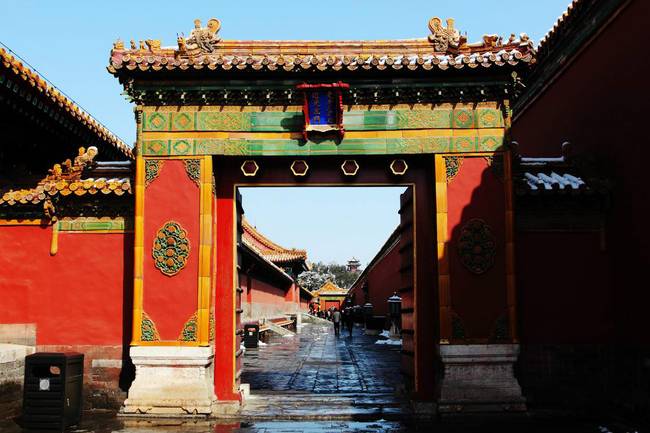(单词翻译:单击)
The Palace Museum has strongly denounced the behavior of an online female anchor who made up a story and disseminated fake news about the former royal complex to garner fame and attention.
日前,故宫博物院强烈谴责了一名网络女主播编造故事、散布关于故宫的假新闻来获得人气和关注的行为。
Video-streaming herself on an Internet site, the woman claimed she was sleeping on the bed used by Empress Dowager Cixi from the Qing Dynasty (1644-1911) in the museum, also known as the Forbidden City.
在某直播平台上,这位女主播声称自己睡在故宫(即紫禁城)内清朝(1644到1911年)慈禧太后的床榻上。
Her behavior made a big splash online, with netizens doubting how she could stay in the museum after it closed its door.
她的举动在网上引起了极大的轰动,网友们都在猜测她是如何能在故宫闭院清场后还夜宿在里面的。
Later, the woman said she was actually filmed sleeping at a film studio, not in the museum.
之后,该主播表示自己其实是在一家影视基地拍摄的睡觉,并非真的是在故宫内。

Shan Jixiang, curator of the Palace Museum, said video monitoring showed the woman and three others entering the museum at 14:13 on May 1 and then leavingt at 16:56, suggesting that it was impossible to have broadcast live at night from the complex.
故宫博物院院长单霁翔称,监控视频显示,女主播和其他三名同伴于5月1日14:13分进入故宫,16:56分离院。据此,可以排除其“夜游故宫”直播的可能性。
"We strongly condemn acts that arbitrarily fabricate and spread fake information as well as disturb social order. The anchorwoman's behavior, including efforts to hide to avoid checks, could spawn copycat competition and jeopardize the protection of cultural relics," said Shan.
单霁翔院长称:“我们强烈谴责肆意编造、传播虚假信息、扰乱社会秩序的行为。该女主播的行为,比如多次提及躲藏在故宫内角落避开检查等,极有可能被他人效仿,给文化遗产的安全保卫工作带来隐患。”
He also said the Palace Museum will protect its own interests through relevant laws and regulations while calling on netizens to be alert regarding fake information and contribute to the protection of the facility.
他还表示,故宫博物院将根据国家相关法律维护其自身权益,同时呼吁网友们对网络虚假信息保持警惕,并帮助保护公共设施。


